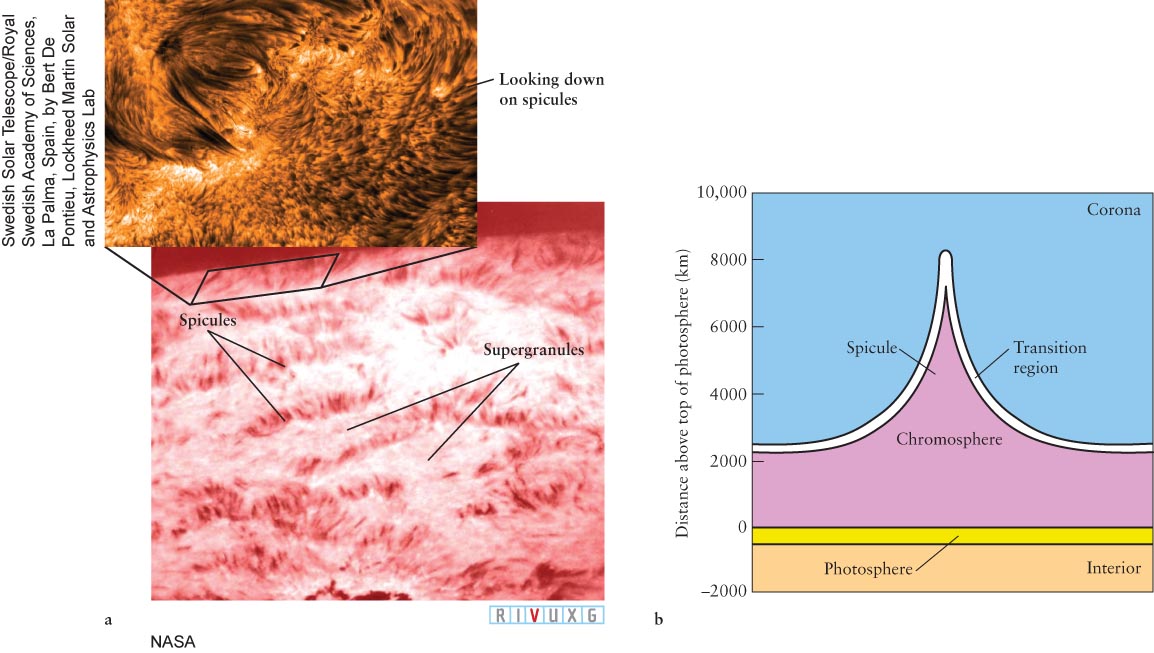
Figure 9- 5 Spicules and Supergranules (a) Spicules appear in this photograph of the Sun’s chromosphere. The Sun appears rose- colored in this image because the photo was taken through a Hα filter that passes red light from hydrogen and effectively blocks most of the photosphere’s light. Surrounded by spicules, supergranules are regions of rising and falling gas in the chromosphere. Each supergranule spans hundreds of granules in the photosphere below. Inset: A view of spicules from above. (b) The spicules are jets of gas that surge upward into the Sun’s outer atmosphere. This schematic diagram shows a spicule and its relationship to the solar atmosphere’s layers. The photosphere is about 400 km (250 mi) thick. The chromosphere above it extends to an altitude of about 2000 km (1200 mi), with spicules jutting up to nearly 10,000 km (6200 mi) above the photosphere. The outermost layer, the corona (discussed in Section 9- 3), extends millions of kilometers above the photosphere.
 Spicules and Supergranules (a) Spicules appear in this photograph of the Sun’s chromosphere. The Sun appears ros
Spicules and Supergranules (a) Spicules appear in this photograph of the Sun’s chromosphere. The Sun appears ros